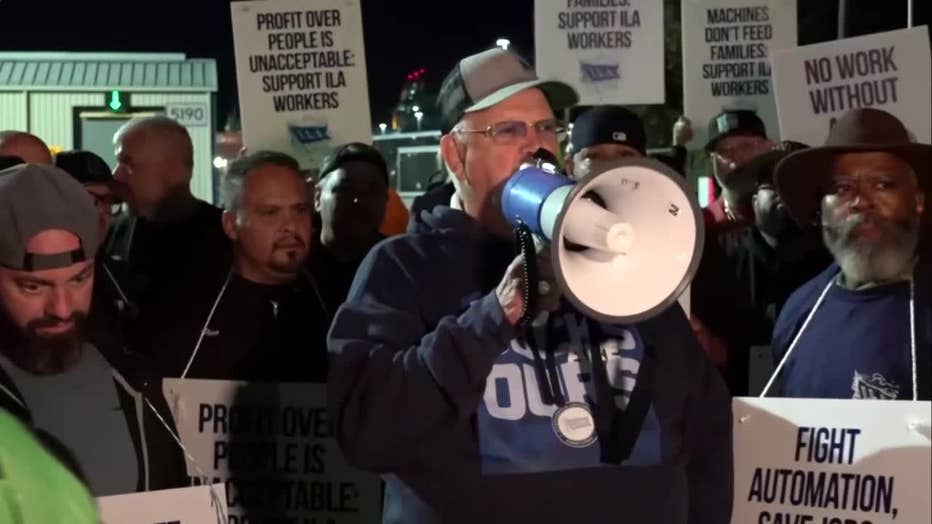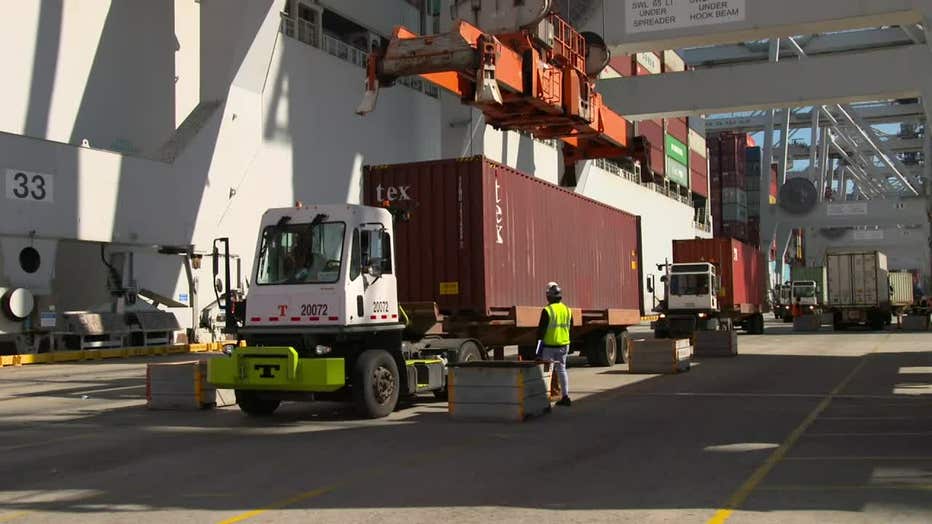Port Strike: How dock workers striking could affect North Texas
How dock workers striking could affect North Texas
For the first time in decades, dock workers from Houston to Main are on strike. A local economist weighed in on how that might affect people in North Texas.
DALLAS - For the first time in decades, dock workers from Houston to Maine are on strike. A local economist weighed in on how that might affect people in North Texas.
The union members are fighting an effort to make ports automated, something that’s being done around the world.

"If it’s up to them, they would like to see automation up and down every port all the way to Houston. That ain’t never going to happen with me," said Harold Daggett, the international president of the International Longshoremen’s Association.
The workers are also calling for better wages.

"The offers that we had didn’t work out. I told them so long, goodbye. We are always willing to sit down when the right numbers hit," Daggett said.
FOX 4 spoke to SMU economist Mike Davis about the scale of the walkout.
"The Amazon delivery van is great. Air cargo is great. But the only efficient way to deliver a great many items is by ocean shipping," Davis said.

The biggest question is whether the strike will impact consumers at home here in North Texas.
Davis said if the strike is short, only lasting a few weeks, there won’t be much of an impact at places like the grocery store.
"I’m not too concerned about the short-run effects. I’m not even really that concerned about for the next, let’s say, through the Christmas season. Because it seems like a lot of places have made adjustments to this. They’ve ordered merchandise. They’ve moved shipments around to the West Coast," he said.
But there’s no telling how long the contract standoff will last.
Featured
Strike at ports update: 45,000 stop work along East Coast, Gulf docks
A union contract involving 45,000 dockworkers lapsed on Monday, kicking off a strike that could shut down ports across the East and Gulf coasts. Here's how it could impact you.
Davis said President Joe Biden could step in. But with the election just 40 days away, it’s unlikely.
"There is the option, and it would have to come from President Biden to invoke the Taft-Hartley Act and call for an 80-day cooling-off period," he said.
Ports on the West Coast operate under a different union. The busiest hubs in Los Angeles and Long Beach have increased automation in recent years.
The ILA president said it resulted in the loss of hundreds of jobs.

The automation subject isn’t unique to the U.S., though. Ports worldwide have moved in that direction, most aggressively in China.
"I understand the unions want higher wages and, you know, we all want higher wages. That’s fine. But to just basically block new technology from making its way to the ports to deliberately make shipping goods more or less efficient, that’s worrisome," Davis said.
The union is seeking a 77% wage increase over six years.
The latest proposal was 50%.


